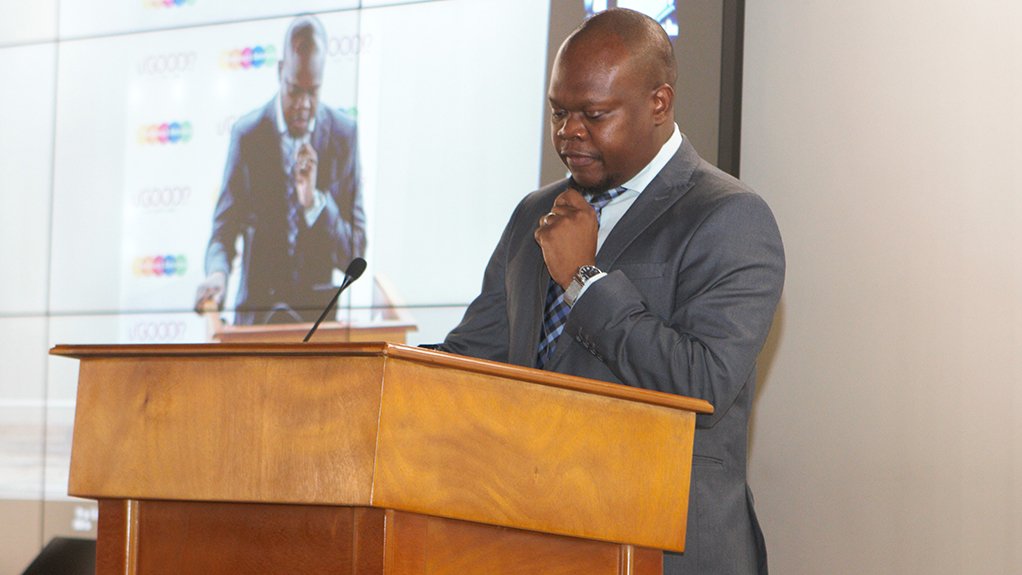South Africa’s National Research Foundation (NRF) CEO Professor Fulufhelo Nelwamondo on Friday stressed the vulnerability of African youth in terms of their well-being, as he announced the launch of the u’GOOD programme, aimed at further developing a framework for research into young people and relational wellbeing in the Global South.
The NRF is in partnership with Switzerland’s Fondation Botnar and the Human Sciences Research Council (HSRC) where it will be working with the youth in Colombia, Ecuador, Egypt, Ghana, India, Indonesia, Morocco, Romania, Senegal, South Africa, Tanzania and Vietnam.
Fondation Botnar has awarded the NRF $10-million for the implementation of u’GOOD.
Nelwamondo noted that the African continent had over 800-million people under the age of 20 and that according to the World Economic Forum, the implication was that by 2030 over 42% of the world's youth would reside there.
u’GOOD academic leader and the HSRC’s Professor Sharlene Swartz noted that the youth in urban and peri-urban areas of the Global South were faced with unprecedented challenges that impacted their relationships with their environment, their beliefs, the people around them, societal structures, and their support landscape. Some of these challenges included unemployment, poverty, climate change, poor education and a lack of marketable skills.
“Up to now, most research into youth and well-being has centred around the Global North and has not translated well for other regions in the world. u’GOOD is designed to help address the specific challenges faced in the Global South by accelerating research into relational well-being and young people in the 12 target countries,” she said.
Nelwamondo said the u’GOOD research programme would expand the reach of the NRF as a funder and intermediary organisation in the developing world.
“We are equally delighted to be implementing this programme with a prominent partner, Fondation Botnar, and to engage with HSRC in the seminal partnering model in the delivery of u’GOOD programme,” he said.
Nelwamondo pointed out that the youth faced unprecedented challenges and they continued to face a very uncertain, precarious future.
“In this regard it seems that the young population in the Global South are the most vulnerable ones and, therefore, it becomes a challenge to all of us to see what we can do,” he stressed.
He said young people were also leading in the development of solutions to safeguard their futures and the planet.
He pointed out that some of the solutions in Africa were developed by the young population, pointing out that the continent had youth that were willing to take steps to address the challenges in their regions or in their respective countries.
He said artificial intelligence (AI), with all its challenges, should be discussed, to ensure that the youth was meaningfully engaged, particularly when it came to addressing data issues as they were the largest content producers of the data.
He said they should be engaged on how they analysed that data as “we are a future that is informed by data and AI”.
He added that the u’GOOD research programme would provide an opportunity to further strengthen youth-related research as an emergent area of development for the NRF, which he said gave effect to its global commitment to support and enhance engagement in line with engagement efforts.
“u’GOOD provides significant opportunity to contribute to the global knowledge base on youth-related issues and effective interventions from the Global South perspective. The NRF has been deliberate to seek out and build long-term partnerships with regional and international organisations as an important contributor to research and research capacity strengthening,” Nelwamondo added.
He said the NRF engagements with Fondation Botnar further strengthened this resolve and provided a concrete example of potential reach and impact with the developing world.
EMAIL THIS ARTICLE SAVE THIS ARTICLE ARTICLE ENQUIRY
To subscribe email subscriptions@creamermedia.co.za or click here
To advertise email advertising@creamermedia.co.za or click here











